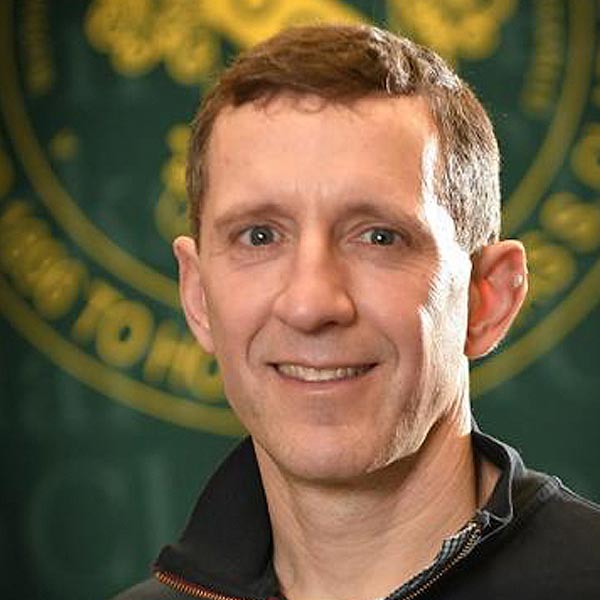An arbitrary-Lagrangian-Eulerian hp-finite element formulation for predicting problems with embedded moving interfaces is presented.
We discuss three main applications, interfacial/free-surface problems, solidification problems, and shock tracking simulations. For the interfacial/free-surface problems temperature-driven Marangoni effects are included, and in the solidification case, anisotropic solidification kinetics modeling silicon are included in the formulations. For the shock problem, different methods for evaluating the normal shock velocity have been investigated.

In all of these cases, the numerical implementation of the interface movement equations strongly affects the robustness of the simulations. A technique for numerical stabilization of the interface equations is presented and test cases given that show optimal orders of accuracy (p+1, where p is the polynomial degree used on each element) can be obtained. Applications of the technique to several practical problems are presented that demonstrate the benefits of high-order accuracy.
Prof. Brian Helenbrook holds the Paynter-Krigman Endowed Chair in Engineering Science Simulation at Clarkson University and is also the Chair of the Mechanical and Aeronautical Engineering Department at Clarkson University.
He obtained his B.S. degree from the University of Notre Dame and a Master’s and Ph.D. degree from Princeton University, all in mechanical engineering. His research interests are mainly in the development and application of numerical simulation techniques for fluid flows and heat transfer with a focus on two-phase flows. He has developed adaptive, arbitrary-Lagrangian-Eulerian (ALE), hp-finite element methods, which enable efficient high-order of accuracy numerical simulations of single and multi-phase flows. Recent application areas are on ducted wind turbines, luge sleds, silicon manufacturing processes, particle laden flows for the oil and gas industry, and aerosol transport of disease. In 2014, he received the University’s Distinguished Teaching Award and in 2018 he was made a fellow of the ASME.